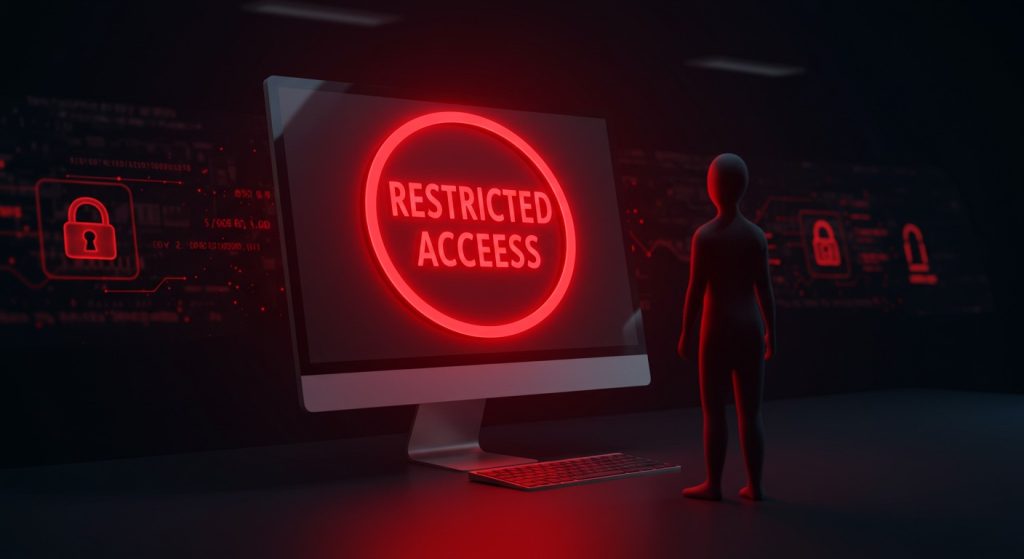Twenty states already have their claws in age verification laws for adult content, and now the feds want a piece of the action. The Shielding Children’s Retinas from Egregious Exposure on the Net (SCREEN) Act, dropped by Utah’s Sen. Mike Lee, is the latest attempt to lock down online porn. It’s not just about keeping kids out—it’s a full-on assault on free speech that could reshape the adult industry. Buckle up, because this fight’s just getting started.
Why the SCREEN Act Matters
This isn’t some state-level nuisance you can dodge by switching servers. The SCREEN Act is federal, meaning it could hit every corner of the U.S. adult industry like a sledgehammer. Backed by a laundry list of conservative groups—think National Center on Sexual Exploitation and Family Research Council—it’s got political muscle. If it passes, you’ve got one year to comply or face the FTC’s wrath. Non-compliance? They’ll slap you with “unfair or deceptive” charges faster than you can say “First Amendment.”
What’s in This Bill?
The SCREEN Act isn’t messing around. It lays out a roadmap to make sure no minor sneaks a peek at your content. Here’s the breakdown:
- No more “click yes, I’m 18” bullshit—it’s not enough.
- IP address verification with public transparency. Your process better be an open book.
- You pick your verification tech, but third-party contractors are fair game.
- Data security’s mandatory—collect only what you need, delete it fast.
- Regular audits and expert consultations to keep you in line.
- The Government Accountability Office will snitch to Congress if you’re slacking.
Sounds like a bureaucratic nightmare, right? It is. And it’s not just about logistics—there’s a deeper game here.
Is It Even Legal?
The SCREEN Act’s got constitutional red flags all over it. First Amendment issues are the big one. Porn’s protected speech, and the Supreme Court’s been clear: laws like this can’t be so broad they screw over adults’ rights. Cases like Reno v. ACLU (1997) and Ashcroft v. Free Speech Coalition (2002) already torched similar laws for being too heavy-handed. If the SCREEN Act demands IDs or biometric scans, it could spook users and create a chilling effect, where people self-censor to avoid Big Brother’s gaze.
“The SCREEN Act could turn lawful porn consumption into a privacy minefield.”
– Industry Legal Expert
Then there’s the Commerce Clause. The feds can regulate the internet, sure, but state laws like Louisiana’s already got heat for messing with interstate commerce. Plus, privacy concerns—think Fourth Amendment—could tank this if the tech isn’t secure. Courts might ask: is this practical? Is it narrow enough? History says no, but if the bill’s laser-focused on commercial porn sites, it might just squeak by.
The Industry’s Next Moves
The adult world’s been through this rodeo before, and it’s time to saddle up again. Here’s how to fight back and stay ahead:
- Lawyer up. Groups like the Electronic Frontier Foundation and ACLU are your allies. Challenge the law’s constitutionality the second it drops.
- Push parental controls. Filtering software’s a better fix than government ID checks. Sell it hard.
- Build privacy-first tech. Encrypted, third-party verification that doesn’t store user data is the goal.
- Get loud. Educate fans about censorship risks and data breaches. Lobby to water down the bill’s worst bits.
- Adapt fast. Shift to subscription models or private networks to dodge ad-platform reliance.
Time’s ticking. The bill’s still early-stage, so there’s a window to organize. Groups like Free Speech Coalition are already gearing up. Join the fight or get steamrolled.
What’s at Stake?
Let’s not sugarcoat it: the SCREEN Act could gut the industry. Major platforms have already pulled out of states with similar laws, citing privacy and compliance headaches. If this goes federal, it’s not just about extra paperwork—it’s about survival. User trust is fragile. Demand government IDs, and you’ll see traffic plummet. Add data breaches to the mix, and it’s game over. The industry’s staring down a future where censorship and surveillance could choke out free expression.
But it’s not hopeless. The adult world’s resilient. From VHS bans to internet crackdowns, it’s always found a way. The key is staying proactive—legal battles, tech innovation, and public pressure can turn the tide. Don’t wait for the gavel to drop. Start strategizing now.





